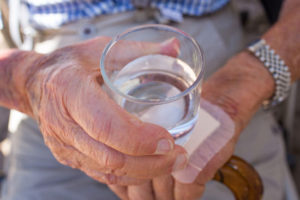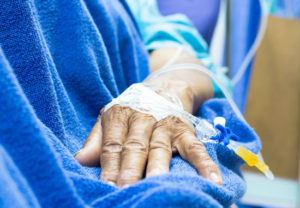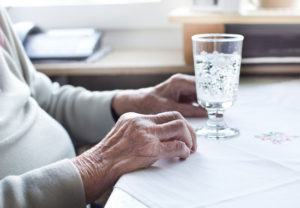Guide By – Los Angeles Nursing Home Dehydration Attorney
 A Los Angeles nursing home dehydration attorney at Cherepinskiy Law Firm will zealously advocate for the rights of the victims or their families. One of the most common maladies experienced be senior individuals is dehydration. Dehydration issues at nursing homes and assisted living facilities are preventable. Yet, unfortunately, patients in in the long-term care setting suffer from this affliction with an alarming frequency. When an elderly individual becomes dehydrated, this is frequently a sign of elder abuse & neglect.
A Los Angeles nursing home dehydration attorney at Cherepinskiy Law Firm will zealously advocate for the rights of the victims or their families. One of the most common maladies experienced be senior individuals is dehydration. Dehydration issues at nursing homes and assisted living facilities are preventable. Yet, unfortunately, patients in in the long-term care setting suffer from this affliction with an alarming frequency. When an elderly individual becomes dehydrated, this is frequently a sign of elder abuse & neglect.
Consequences of Dehydration in Elderly
In order for all organs in a human body to function properly, water needs to be regularly replenished. Dehydration occurs when a person suffers an excessive loss of body water. In the setting of long-term care of the elderly, dehydration is common because elderly individuals are especially vulnerable to dehydration. Therefore, nursing homes and assisted living facilities must take proactive steps to ensure appropriate water intake for their patients and residents and prevent dehydration.
For the elderly patients, dehydration can cause severe complications which include, but are not limited to, the following:
- Hypovolemic shock: this severe and, potentially life-threatening and fatal, consequence of dehydration occurs when a patient’s low volume of blood leads to a serious decrease in blood pressure. Specifically, when more than 20% of the body’s fluid supply is lost, the heart cannot pump an adequate amount of blood to the body. This can cause an organ failure and even wrongful death;
- Lengthy and multiple episodes of dehydration can potentially lead to UTIs (urinary tract infections) and kidney stones. In the most severe instances, it can cause kidney failure;
- Electrolyte imbalance: Electrolytes include sodium, potassium, chloride, magnesium, calcium, bicarbonate, and phosphate. They conduct electrical signals in the body, which are essential in the function of multiple organs, including the heart, brain, muscles, and the nervous system. When a person’s electrolytes are not balanced, it can cause a loss of consciousness, seizures, and death.
Causes of Dehydration in Nursing Homes
In the setting of long-term care, there are multiple potential reasons why patients and residents become dehydrated. Some elderly individuals suffer from swallowing difficulties. Other seniors become dehydrated during various illnesses — such as influenza (the flu) and the resulting fever, gastroenteritis and the resulting diarrhea and vomiting, bronchitis, and UTIs (urinary tract infections). However, cognitive issues (e.g. dementia) and language barriers (e.g. if a patient is a non-English speaker) may prevent elderly individuals from expressing their need for water due to dehydration. Lack of appropriate staff training and understaffing also contribute to the high incidence of dehydration in nursing homes.
Symptoms of Dehydration in Elderly
 With dehydration in elderly, prompt treatment is crucial; otherwise, this condition can quickly worsen and lead to severe and frequently tragic consequences.
With dehydration in elderly, prompt treatment is crucial; otherwise, this condition can quickly worsen and lead to severe and frequently tragic consequences.
The following are some of the early symptoms of dehydration in elderly:
- Strong feeling of thirst
- Significantly decreased volume of urine output
- Dark yellow urine
- Headaches
- Muscle cramping
- Dry mouth
- Dry skin
When dehydration proceeds to its severe form, patients may experience the following symptoms:
- Mental state alterations – dizziness, confusion, hallucinations, delirium, irritability, disorientation
- Hyperventilation (panting and rapid breathing)
- Tachycardia (rapid heart rate)
- Hypovolemia (extreme drops in blood pressure)
- Complete lack of sweat
- Complete lack of urination
- Extremely dry skin
- Lack of energy and sleepiness
- Neurological symptoms such as losing consciousness (fainting) and seizures.
Prevention of Dehydration of Elderly in Nursing Homes and Assisted Living Facilities
 Nursing homes and assisted living facilities must properly train their staff in prompt recognition of signs and symptoms of dehydration. They have to avoid understaffing. Patients and residents must be closely monitored and checked for dehydration symptoms. If dehydration is suspected or confirmed, appropriate care and treatment has to be started immediately. Whenever an elderly patient is vomiting, has diarrhea, and otherwise shows early signs of being sick, steps must be taken to avoid dehydration by providing this patient with additional water and other rehydrating / electrolyte-containing drinks (e.g. Gatorade).
Nursing homes and assisted living facilities must properly train their staff in prompt recognition of signs and symptoms of dehydration. They have to avoid understaffing. Patients and residents must be closely monitored and checked for dehydration symptoms. If dehydration is suspected or confirmed, appropriate care and treatment has to be started immediately. Whenever an elderly patient is vomiting, has diarrhea, and otherwise shows early signs of being sick, steps must be taken to avoid dehydration by providing this patient with additional water and other rehydrating / electrolyte-containing drinks (e.g. Gatorade).
Take Action! Promptly Contact a Los Angeles Nursing Home Dehydration Lawyer for a Free Consultation
As Los Angeles nursing home dehydration lawyer, Dmitriy Cherepinskiy, and his firm aggressively and zealously pursue justice. If you or your loved one suffered or continue(s) to suffer from dehydration at a nursing home or an assisted living facility, this firm will fight to vindicate your rights.
If you suspect elder abuse in the form of the failure to prevent dehydration, please call or fill out an electronic contact form today to request a free consultation. Cherepinskiy Law Firm, as the Los Angeles elderly dehydration attorney, will work vigorously to bring the wrongdoers to justice, and to obtain the maximum case value and compensation you deserve.
This firm provides legal services for clients throughout California, including Los Angeles, Orange County, as well as Ventura, Riverside and San Bernardino Counties.
Sources
1. https://medlineplus.gov/dehydration.html
2. “Hydration practices in residential and nursing care homes for older people”, Journal of Clinical Nursing (April 2019), https://www.ncbi.nlm.nih.gov/pubmed/30520190/







